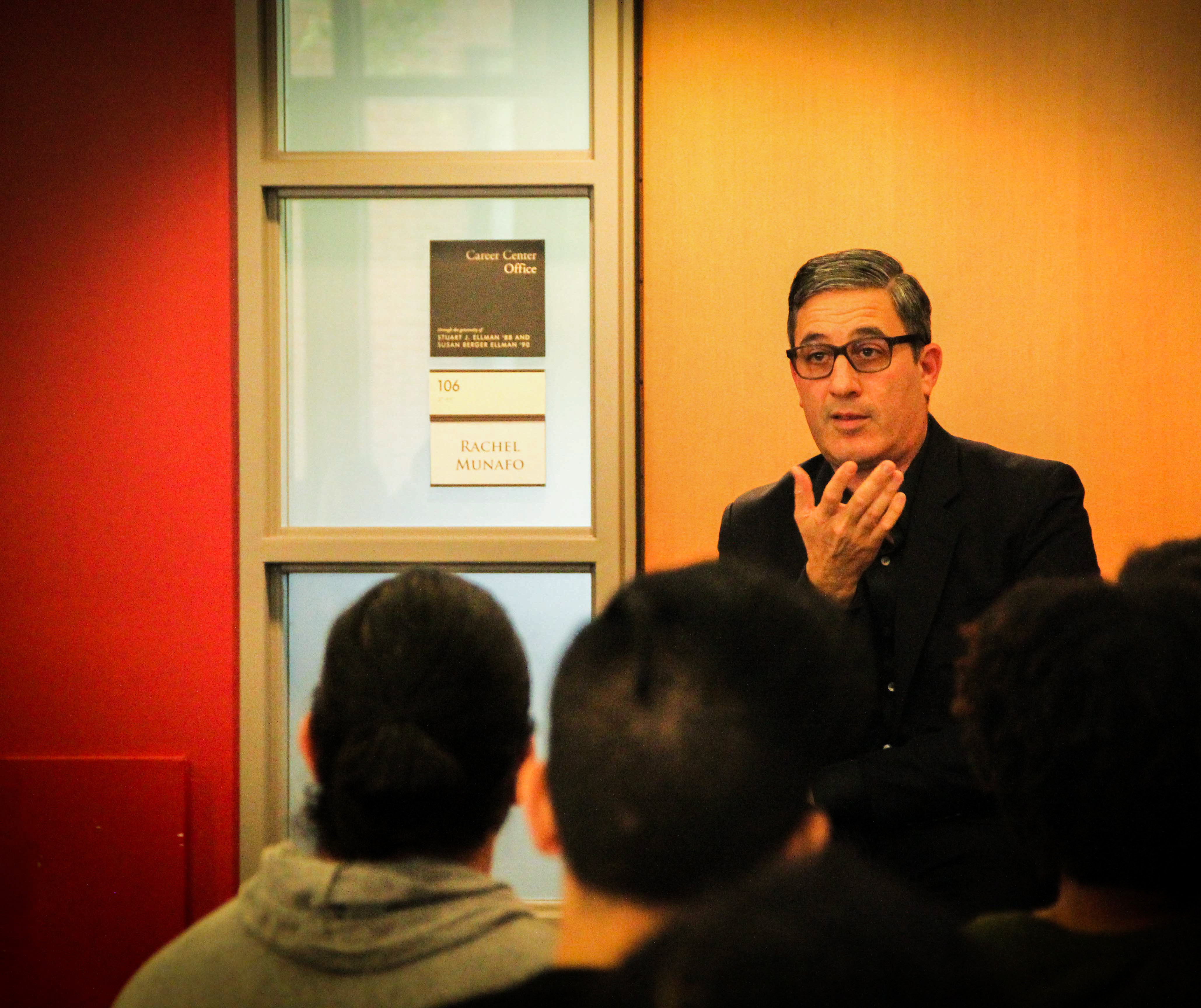
On Friday afternoon, Wesleyan’s Gordon Career Center hosted Jason Weinberg ’89 for a question and answer session about his career in the entertainment industry.
In 1999, Weinberg founded the management firm Untitled Entertainment with Guy Oseary and Stephanie Simon. Since then, Untitled Entertainment has guided the careers of celebrities including Britney Spears and Naomi Watts, and has managed successful projects like the Showtime TV show “Ray Donovan” and the Zac Posen-based documentary “House of Z.”
The event was co-sponsored by the Gordon Career Center and the Office of University Relations and attracted over 40 students from a wide array of departments including Film Studies, Psychology, Economics, Theater, and Music. Weinberg graduated from Wesleyan with a double major in psychology and economics and also attended the London School of Economics.
Weinberg expressed a deep enthusiasm for the liberal arts ethos and a genuine interest in helping Wesleyan students. For Weinberg, the inclination to help those from his alma mater stems from a feeling of gratitude towards Wesleyan alumni that have assisted him on his own career path.
As students became more comfortable, the event evolved from Weinberg answering questions from a student moderator into him fielding questions and giving advice to students seated in the crowd. Weinberg exudes a paradoxical combination of humility and confidence that enables him to seem simultaneously approachable and intimidating. He expressed a clear enthusiasm for giving internship opportunities to students who are passionate about the arts, even if they aren’t yet sure about where they fit into the entertainment industry.
Throughout the hour, multiple students stood up, introduced themselves and their interests, and asked questions that ranged from: “What is your best advice for entering the industry?” to “What does a typical day look like for you?” to “How has your Wesleyan education shaped your experience?” When Weinberg mentioned some of his more famous clients, a student asked if he is still involved in the talent acquisition and recognition process. Weinberg gave a thoughtful response about how much he enjoys working with already-established artists, like Liev Schreiber, but also how excited he is about finding new talent and helping artists break into an industry that is extraordinarily difficult to enter.
At one point, a student standing in the back of the room asked if Weinberg could get him a job and when he could set up a meeting for the two of them. Weinberg gave the same answer he had given to previous questions about job opportunities: He said he was happy to help and advised the student on the best way to reach out to him. The student seemed unsatisfied with this response and pressed Weinberg to meet with him one-on-one after the event to set up another meeting in the future. As someone clearly well-versed in navigating personalities and egos, Weinberg was able to seem interested but unfazed by the request and answered without making any explicit promises or commitments.
Weinberg’s description of his work-life balance was refreshingly genuine. While he was clearly passionate about his job and seemed to love his day-to-day work, he admitted that there are no off day and acknowledged that he spends a lot of time emailing and on the phone. Among the wealth of insights and personalized advice he gave to students, his most universally applicable sentiment was to be an active participant in your career.
Emma Solomon can be reached at ebsolomon@wesleyan.edu.


Leave a Reply